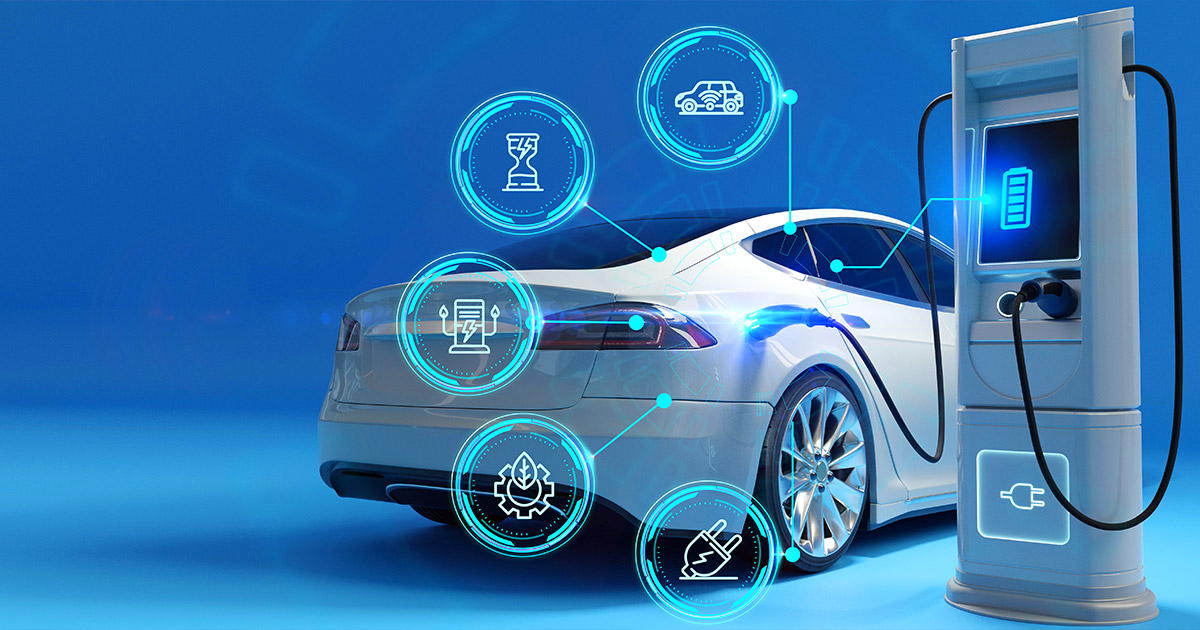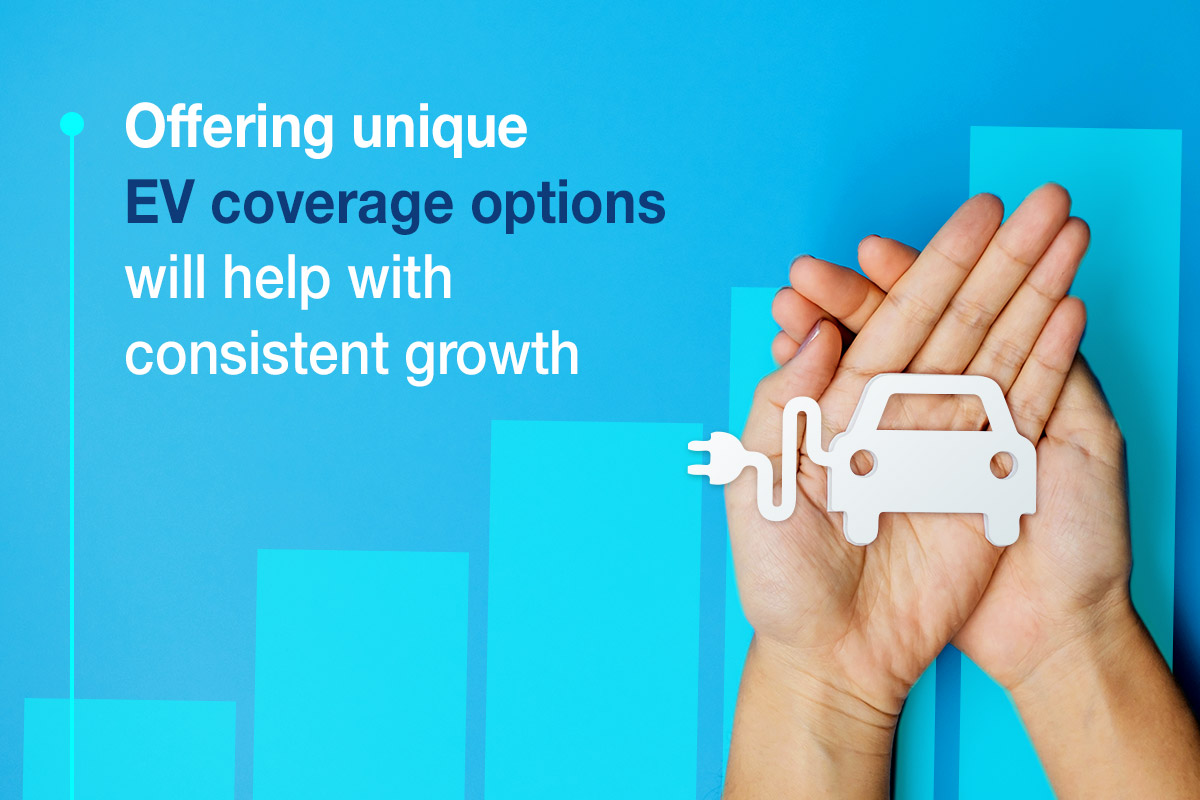
S ustainability in the automotive industry is changing the way people view and purchase vehicles. Instead of looking at their prospective car as a depreciating asset, the market has pivoted towards a longer-lasting, software-focused model that looks to provide for low-risk vehicle ownership. Aftermarket products such as warranties and service contracts need to be catered to a whole new crowd of EV consumers. As we move into this new way of purchasing, it’s important to view the consumer trends and adjust the way coverage is presented to customers.
The Average EV Product Buyer
Traditional ICE (internal combustion engine) vehicles have a lot of sway over how consumers view and purchase their vehicles. Vehicle depreciation is taken into consideration with every purchase, with over 60% of people holding onto their cars for less than 5 years. There’s a general fear of “what will happen?” that plagues the consumer’s mind. EVs have changed the way people think about buying. Companies like Tesla have mimicked technology or software sales with how they approach their buyers. This trend has created a more educated and invested buyer who isn’t jaded by the entire purchase process yet. Instead, they are looking for tailored experiences that speak to their specific needs, personalized aftermarket products, and coverage that fits their daily lives.
The best way to engage EV customers from an F&I and aftermarket perspective is to remove the traditional “menu” format and look to have a conversation with them. They know their vehicles are complex, and most of the time they will be looking to you for guidance. This creates a unique opportunity for dealers and administrators to really meet their customers where they are instead of fighting through negotiations.

Selling Extended Warranties and Service Contracts
As mentioned, this emerging vehicle market is creating a new challenge that dealers must overcome. It’s clear that the market is looking for electric vehicles to be more accessible, however, how can a dealership cover the vehicle after its manufacture warranty is up? This can be a huge issue when looking to administer an extended warranty or service contract, as part of the purchase value of an EV is that they last a lot longer than your standard ICE vehicle. According to Consumer Reports, at the base line, EVs cost consumers about $4,600 over its lifetime. This can mostly be attributed to the powertrain being more reliable with less strain put on the drive over time.
Looking at the lower maintenance cost, it’s clear to see why buyers view EVs with less assumed risk than standard vehicle purchases. There are, however, ways F&I teams can navigate this conversation. What’s actually happening with EVs is:
- Battery coverage is still uncertain as it’s more complex than an ICE vehicle.
- There are a lot of unknowns of how EVs can be maintained and built long term.
- Used EV software can be outdated, bringing to light the need for refurbishment.
Keeping these concepts in mind, dealers and administrators can build value around additional protection based on the uncertainty of the new market. While EVs are a great purchase from a cost and maintenance perspective, it’s clear that buyers can still find value in creating risk of ownership experiences.
The Future of EV Aftermarket Products
Moving into 2023, EVs have the perception of “it’s a safer purchase,” , and in many cases, it is. When buyers view these vehicles, they are mostly looking at the potential rather than the immediate need. In reality, buying a car is always going to be a liability. Just like any other large purchase, the market can shift based on how the product is received. Here are three action items to look out for with managing EV warranties and contracts.
Cost of Service
While the cost of service is indeed lower over the lifetime of an EV vs an ICE, it’s important to remember that each individual service will cost more than it’s alternative. This is mostly due to the complexity of the powertrain and the battery composition. Service departments and mechanics alike will more than likely continue to charge more for each service as they learn more about the vehicle itself. This also doesn’t take into consideration the OEM service vs an independent shop. Servicing a Hyundai Kona EV will look different than a Toyota Rav4 EV. With that being said, pre-paying for service or wrapping service visits into a payment is still a viable option for electric vehicles.
Retail Parts and Products
The availability of OEM parts for EVs is still somewhat unknown, and this fact is causing retailers to charge more for the parts needed in service or repairs. There are a lot of variables in whether or not each dealer will have access to these parts, and third-party parts retailers will try to fill in the gap between what is and is not available.
Warranty and Gap Coverage
Another topical issue in regard to aftermarket EV coverage is how far out the vehicle should be covered for. Needless to say, software gets old and outdated and an entire car based on the functionality of an operating system can be daunting. Moving forward throughout 2023, we’ll see a greater need for unique coverage options that are built into a single contract. Dealers can navigate these conversations by understanding the powertrain longevity of an EV vs the length of functionality.

How PCMI is Tackling the EV Market
The usability and mobility of your administration software is important regardless of where the automotive market is, however, F&I for electric vehicles is changing how warranty programs are managed. Our PCRS software automates the lifecycle of your extended warranty and service contract offerings, creating space for dealers to generate more ROI through custom automation and analytics. By upscaling your policy, claims, risk, and sales platforms, PCMI has done the work to ensure you’re ready for EV contracts to be processed.

If you’d like to learn more, check out our recent webinar: Designing, Selling and Marketing F&I Products & Services for Electric Vehicles.

